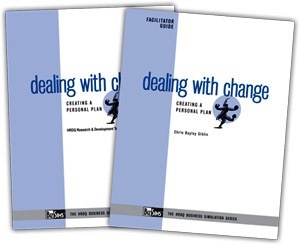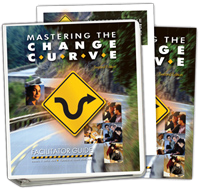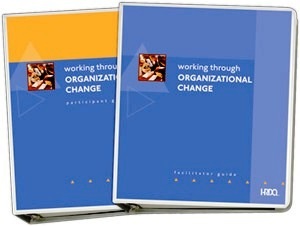CHANGE MANAGEMENT Training Service
Planning for Change, Motivating, Persuading and Responding to Potential Resistance
Training Course Description“Whosoever desires constant success must change his conduct with the times.”
~ Niccolo Machiavelli The world is changing and is changing faster than ever before. Our technological progress is affecting every area of our lives and as a result of that, the markets are changing quickly too. Organisations that want to remain competitive in this ever changing market need to be one step ahead of the change or risk losing out to those who do. Responding to change requires a continuous change programme where the company can constantly and dynamically adapt. Alternatively, an organisation may need to go through a major change programme periodically to remain competitive. Going through change can be quite costly, but it is a necessary part of progressing forward. People in charge of a change management progress must consider a variety of areas such as organisational change, persuasion, how to communicate the need for change, how to gain momentum, how to overcome resistance to change and how to deal with powerful resisting stakeholders to succeed. This course is designed to help the participants familiarise themselves with these topics so they can be prepared to handle them when designing or executing a change management programme. The course contains both theoretical and practical content. Participants will learn about established theories of change management and reasons for failure. They will learn what is involved in each stage of a change programme and what they need to consider to maximise the likelihood of its success. This is then complemented by people management techniques such as skills management, persuasion techniques, coaching, mentoring and motivating. |
The Philosophy Behind Change Management Training CourseChange management is an extensive field as it touches on many aspects of organisational management including psychology, behavioural studies, general resource management and project management techniques. As a result, this 1-day course is designed to focus on critical parts of this field to swiftly familiarise the participants with important areas, guidelines and techniques that are well-established in the field.
The course can also be used for people who are subject to change and not necessarily in charge of a change programme. This course will help this group of people to better understand what goes through a change programme and how they can contribute. Exercises are also designed to help delegates systematically discuss various aspects of dealing with change. Through these discussions delegates will learn from each other on different trends and techniques in change management and also practice persuading others on what they think is right. The trainer can then relate back these discussions to persuasion techniques discussed in the course for further training on the subject.
|
|
In this highly practical course participants will learn:
Why Change?
|
By the end of this course the delegates will be able to:
|
Change Reaction InstrumentUnderstanding one’s own reactions to change is the first step in dealing with it. An excellent starting point, Change Reaction is an effective learning tool for understanding personal reaction to change. The 24-item instrument helps individuals learn about their typical reaction to change – and identify ways to manage it effectively.
|
Dealing With ChangeDealing with Change offers a proactive, 5-step plan for coping with the challenges of organizational change. This business simulation takes a focused, personal, and proactive approach to managing the emotional side of change, helping employees learn how to regain a sense of control and turn negative emotions into positive actions.
|
Leading Change at Every LevelIn decades past, change leadership used to fall squarely on the shoulders of the executive echelon. But in today’s empowered organizations, the responsibility of championing change cascades throughout the organization, regardless of authority or position. Leading Change at Every Level is comprehensive self-assessment and classroom workshop that measures skill level and develops the five behaviors of effective change leaders. It’s the training toolkit every trainer needs to build competent change leaders from the top to bottom.
|
Mastering the Change CurveProactively managing organizational change can result in a corporate culture that is optimistic - fueled by empowered leadership and employees who feel valued and secure. Mastering the Change Curve will train your team to identify and understand the four phases of change: Denial, Resistance, Exploration and Commitment and provide skills to help each individual productively navigate through the process.
|
Working Through Organizational Change ProgramEveryone has a reaction to change, whether the change is organization wide or specific to individual departments or employees. The more we know about the process of change, the better equipped we are to take steps toward the acceptance of change and adapt to it in our work and our lives.
|







